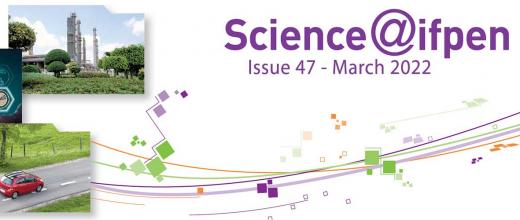Faced with the current climate challenges, alternative fuels are attracting a growing interest for the mobility of the future. Of the various possible alternatives, hydrocarbons could be synthesised via a well-known process: the Fischer-Tropsch (FT) process, based on Syngas (CO and H2) produced, in particular, by biomass gasification. (...) However, the deactivation of FT catalysts is a major issue that directly impacts the costs of the process. (...) To identify these mechanisms, a multiple-stage methodology was implemented as part of a doctoral thesis...









